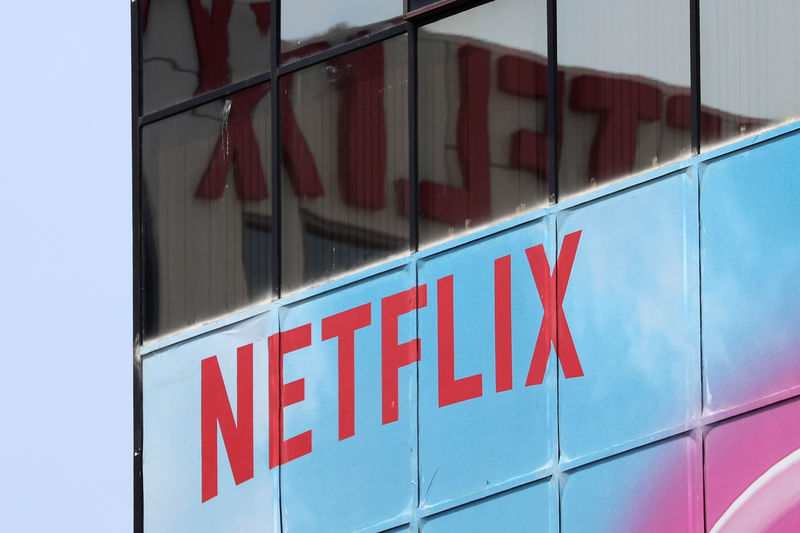This post was originally published on this site
https://i-invdn-com.investing.com/trkd-images/LYNXMPEJ6R03A_L.jpg
TAIPEI (Reuters) – Six years after the #MeToo movement rose to global prominence and toppled powerful perpetrators of sexual abuse, Taiwan is racing to reform laws and provide training and support as it reckons with its own wave of complaints.
Despite Taiwan’s reputation as a progressive bastion in a conservative region – the first place in Asia to legalise same-sex marriage and one of few to have a female leader – it took the spark of a Netflix (NASDAQ:NFLX) drama for it to confront a problem long shrouded in shame and silence.
“It is your voices that have pushed our society to have no choice but to take this issue seriously,” Lai Pei-hsia, one of the stars of “Wave Makers” told a crowd at a concert in support of the island’s movement on a recent sweltering evening.
“Whether as individuals, families, or workplaces, our society has started to deeply reflect and think of ways to prevent the same thing from happening again,” said Lai.
The Taiwanese show “Wave Makers” is about the members of an election campaign team, including a supportive manager who convinces a young staffer who was groped that the issue is too important to be swept under the rug.
The drama mirrored reality two months ago when an allegation of sexual abuse surfaced that was linked to Taiwan’s ruling party.
Citing a line from “Wave Makers” – “Let’s not just let it go, OK?” – Chen Chien-jou took to Facebook (NASDAQ:META) in May with her account of abuse close to the heart of government.
Her criticism of the then-head of the Democratic Progressive Party’s women’s affairs department for dismissing her complaint went viral.
Within days, President Tsai Ing-wen publicly apologised and the party cut ties with the contractor she accused. The man apologised for any “misunderstanding or offence” and said he hoped investigations would reveal the truth.
‘NO POWER’
The incident triggered a flood of complaints, unprecedented in a society in which victims of abuse often stay silent due to what experts say is a tradition of victim-blaming, cultural pressure, and unequal power relationships.
A labour ministry survey published in March showed that nearly 80% of women and 85% of men who are sexually harassed in the workplace do not file complaints.
But since Chen’s account went public, many victims have come forward and scores of men, entertainers, academics, businessmen and judges among them, have become embroiled in accusations.
Some say the ruling party’s quick response to Chen’s complaint has encouraged more victims to speak out.
“People can see a woman with no power challenging the majority party … and she was believed,” said Chen Chao-ju, a law professor at National Taiwan University.
A January presidential election might have helped focus the government’s attention on the problem, experts say, but nevertheless it has responded with a flurry of legal reform.
Tougher penalties, clearer reporting and investigating procedures, and stronger protection for victims are due to be passed this month.
Lee Yen-jong, head of the party’s gender equality department, said measures were being adopted to prevent and respond to sexual harassment, including staff training, protocols for managers, and an external complaint channel in addition to internal ones.
“You can’t decouple prevention and response,” Lee said. “But at the moment, everyone is more urgently seeking to understand how to handle cases because it feels like there are many incidents now.”
COMPANIES RESPOND TOO
Businesses are also responding by investigating complaints and training staff in preventing abuse.
Peng Yen-wen, who heads an umbrella organization of women’s groups across the island, said non-profits have been inundated with calls from companies dealing with complaints.
Her group has set up a hotline to connect companies with gender equality experts, lawyers, and psychologists.
Liu Jung-jen, director of education and advocacy at the Modern Women’s Foundation, which offers sexual harassment prevention training, told Reuters she is booked through October after a more than six-fold increase in corporate inquiries from hotels, banks, tech companies and others.
Liu said she wanted to take advantage of the surge in concern about abuse to train as many people as possible.
A group of more than 40 lawyers has also stepped up to create a network for victims facing defamation lawsuits to prevent perpetrators from silencing victims, said Yu Mei-nu, president of the Taiwan Bar Association.
“What we see today is people with a good social image unexpectedly turning out to be harassers. This causes society to reassess,” Yu said.
Some families see the uproar as a good teaching opportunity.
Johnson Hsieh, a 42-year-old doctor, brought his seven and nine-year-old daughters to a park in Taipei on a recent Saturday for a #MeToo concert. Sitting on a picnic blanket, they listened to the actress Lai, psychologists and lawyers speaking about a more fair society in between ballads and dance hits.
Hsieh said he hoped exposure to the movement at a young age would help his daughters develop a sense of equality.
“In the global context, Taiwan is still conservative. I hope we can develop to be more progressive,” he said.

